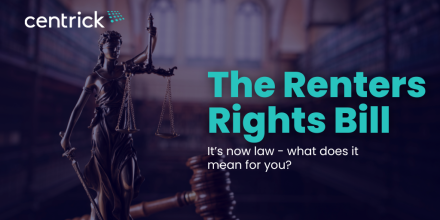The recent Labour election victory marks a significant turning point for the property sector, welcoming in a new era of stability, growth, and sustainability. With Labour’s initial and longer term plans outlined in their manifesto, can the property industry look forward to a more secure and progressive future?
Let’s dive straight into the key areas of Labour’s manifesto that could positively impact the UK property market, including changes to Section 21 under the Renters Reform Bill, infrastructure goals, commitments to building (and built-in targets), as well as a focus on sustainability goals.
Commitment to Building and Infrastructure
Labour’s ambitious building plans are set to transform the landscape of our industry. With a focus on addressing the housing crisis and improving infrastructure, Labour’s policies will aim to create a plethora of opportunities for the property sector.
Tackling the Housing Crisis
Labour’s pledge to build more affordable homes is a crucial step in addressing the current housing shortage. The pledge to build 1.5 Million homes over the next parliamentary term could be a welcome relief to many. By increasing the supply of affordable housing, we can hope to see a more balanced market, reducing the pressure on existing rental properties and promoting fairer rental practices. Sir Kier Starmer, now entering number 10, has promised,
“Labour will prioritise the building of new social rented homes and better protect our existing stock by reviewing the increased right to buy discounts introduced in 2012 and increasing protections on newly-built social housing.”
Sir Kier Starmer
Creating this growth in housing stock will be welcomed by many, but it remains to be seen how Labour plan to take a new approach to greenbelt land designation, suggesting a new strategic position but with careful emphasis on grey belt land and a series of “Golden Rules” around community and natural environment benefits.
Labour has also pledged to appoint a further 300 planning officers, using funds collected from additional non-residential stamp duty land tax increases. With an estimated 22,000 planners across the UK, the newly elected Labour government also plan to introduce new mechanisms for “Cross boundary strategic planning” and re-institute mandatory housing targets.
Residents across the BTR and PRS landscape as well as the broader residential sector may not see the impact of a new Labour government immediately but it is clear that across all sectors sustainability will be a priority.
Embracing Sustainability
Labour’s commitment to the UK’s sustainability goals will aim to significantly influence the property market. Emphasizing green construction, energy efficiency, and sustainable practices aligns the property industry with the broader environmental agenda.
Green Construction and Retrofitting
Labour’s focus on sustainable building practices includes initiatives for green construction and retrofitting existing buildings to enhance energy efficiency. Developers will play a vital role in this transition, overseeing the implementation of eco-friendly upgrades and ensuring properties meet new environmental standards. This shift not only benefits the environment but also reduces energy costs for tenants, making properties more attractive. Whilst no plans have been specified on changes or amends to the Decent Homes Standard or what the “Warm Homes” initiative will mean for both residents, developers and property owners, it’s clear that long term sustainability is key.
Meeting Sustainability Goals
The drive towards achieving the UK’s sustainability goals will lead to increased demand for properties that adhere to these standards. Our latest research has already identified sustainability as one of the most sought-after features by tenants across the UK, and we can only anticipate this increasing. Developers and property professionals who embrace these changes and incorporate sustainable practices will be well-positioned to attract eco-conscious tenants and investors, enhancing their market competitiveness.
Positive Economic Impact
Labour’s economic plan promises a broader positive impact on the property market as part of both specific initiatives and through a wider UK economic “kickstart”. By fostering economic growth, job creation, and regional development, Labour’s policies aim to create a more vibrant and robust property market whilst removing red tape, increasing collaboration and building access to available lending products.
Infrastructure Improvements
Investments in public transportation and local infrastructure feature heavily in the overall approach of the new government, seeking £3 private investment for every £1 of public investment but it remains to be seen where focus will land once the new administration is entrenched. Connecting communities and underserved parts of the UK will undoubtedly be on the agenda and this could make previously less desirable areas more attractive to residents and developers. Sir Kier Starmer’s National Infrastructure and Service Transformation Authority will aim to bring together existing bodies to set the priorities for infrastructure projects and aims to bring down the cost of new rail, road and reservoir projects too. Improved connectivity and amenities could enhance the desirability of areas outside of city centres and the current transport networks, expanding the market and boosting property values, and with the planned creation of a “new generation of new towns” creating a series of entirely new large scale communities.
Job Creation and Economic Stability
Investments in construction and infrastructure projects will create numerous jobs, boosting economic stability. A thriving economy will increase demand for rental properties as more people relocate for employment opportunities across the UK, providing developers and landlords with a steady stream of potential tenants.
Regional Development
Labour’s emphasis on regional development ensures that economic benefits are distributed more evenly across the country. This approach will open up new markets across the sector, as regions outside of major urban centers become more attractive for both living and investment.
Reforming Rental Practices
One of the most impactful changes Labour intends to implement is the reform of rental practices, particularly the abolition of Section 21 evictions which Labour state in their manifesto will be “immediately abolished”. Whilst the future of the current full Renters Reform Bill is yet to be seen, the party have been vocal about the long-term reform of both the rental sector and the leasehold system stating:
“For far too many leaseholders, the reality of home ownership falls woefully short of the dream they were promised. Labour will act where the Conservatives have failed and finally bring the feudal leasehold system to an end. We will enact the package of Law Commission proposals on leasehold enfranchisement, right to manage and commonhold. We will take further steps to ban new leasehold flats and ensure commonhold is the default tenure. We will tackle unregulated and unaffordable ground rent charges. – aiming to provide greater security and stability for tenants renting across the county.”
Enhancing Tenant Security – Abolition of Section 21
The abolition of Section 21, also known as “no-fault” evictions, will prevent landlords from evicting tenants without a valid reason. This change will foster a more stable and predictable rental market, benefiting both tenants and landlords by creating a greater sense of security for tenants in their homes, reducing turnover rates and fostering longer-term tenancies. With lobbying and debate on all sides of the residential space, it is clear that the incoming Labour government will need to make clear, decisive decisions.
Improved Landlord-Tenant Relationships
By eliminating the arbitrary power of no-fault evictions, landlords and developers can focus on building stronger, more cooperative relationships with tenants. This shift will encourage better communication and prompt resolution of issues, ultimately leading to higher satisfaction and better-maintained properties.
Labour’s election win heralds a positive future for the property sector. The abolition of Section 21 under the Renters Reform Bill, commitments to building and infrastructure, and a strong focus on sustainability goals collectively promise a more stable, secure, and progressive property market.
Stay Up To Date With Centrick
As your local property experts, we’re here to provide you with all of the property news and insights on the UK general election. Have any specific questions? Fill out the form below to contact a member of our expert team – we’re on hand to help you navigate the property market following the results of the UK General Election.









